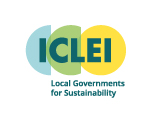Frequently asked questions
- Enabling access to finance to scale up local climate action
- Accelerating net-zero emission and climate-resilient development
- Supporting national ambitions through impactful local infrastructure projects
- A subnational demand-driven Project Pipeline
- A a one-stop interface for subnational governments and local businesses to submit their sustainable infrastructure projects, which are then supported by the various Project Preparation Facilities backing TAP
- A platform publicly presenting projects seeking finance, while also partnering with other platforms
- An advocacy instrument presenting the demand and diversity for subnational project finance
As of January 2024 the TAP partners are:
- bettervest
- C40 Cities Climate Leadership Group (C40)
- Cities Alliance
- Deutsche Gesellschaft für Internationale Zusammenarbeit GmbH (GIZ) / Covenant of Mayors in Sub Saharan Africa (CoM SSA) component III
- Deutsche Gesellschaft für Internationale Zusammenarbeit GmbH (GIZ) / FELICITY
- European Investment Bank (EIB)
- Global 100% RE Platform
- Global Covenant of Mayors (GcOM)
- Global Fund for Cities Development (FMDV)
- Global Infrastructure Basel (GIB) Foundation
- Lincoln Institute
- R20 – Regions of Climate Action (R20)
- Sustainable Infrastructure Foundation (SIF)
- UN Capital Development Fund (UNCDF)
- United Cities and Local Governments (UCLG)
- United Nations Human Settlements Programme (UN-Habitat)
The TAP partnership is growing and is open for all wishing to support cities, towns, and regions to a low-to no-carbon, resilient development. Interested organization can express their interest to any TAP partner or by contacting ICLEI directly at tap@iclei.org.
Subnational governments and local businesses benefit from personalized services from TAP partners during the whole project cycle, from early stage project definition to long-term mentoring, with the aim to develop solid and investment-ready projects.
Depending on the maturity of the project, the TAP services can include:
- Matchmaking with potential investors and funding institutions
- A thorough exploration of possible funding opportunities and financial strategies
- Connection to Project Preparation Facilities and initiatives that offer additional technical assistance
- Exploration of innovative financing mechanisms fitting and suitable to local demand
- Capacity building and technical assistance on preparing robust project concepts, including planning and feasibility studies
- Projects must be submitted by a subnational government (or their partners/representative) or local business
- (Hard) infrastructure projects
- Proven impact (ambitious, cross-cutting, inclusive)
In the case of TAP, “impactful” refers to a project that contributes to tackling climate change (e.g. reducing emissions or adapting to the consequences of climate change). It supports systematic and sustainable change at the community level, with the potential for large-scale impact and scalability.
Alongside this criteria, TAP projects should embed the three key components: Ambitious, cross-cutting, inclusive. There will be a basic screening process of these criteria when projects are submitted.
| Ambitious | Cross-cutting | Inclusive |
|---|---|---|
Aligned with the Paris Agreement
|
Relevant
|
Administration
|
Aligned with the Sustainable Development Goals (SDGs)
|
Holistic and integrated approach
|
Residents
|
Local business and industry
|
There is an annual TAP call, announced at an international event and on the TAP website. The 2021 TAP call opens on 1 March.
Once the call is open, applicants can Register or Login to access the application form (available in 4 languages), developed by TAP Partners in consultation with city networks and financial institutions.
Submitted projects are screened by experts in sustainable finance. Those with great potential for impact can receive personalized feedback and, once considered investment-ready, are connected to project preparation facilities and financial partners that will support their implementation.
Projectss not meeting the requirements will anyway get feedback and recommendations to further improve.
The TAP’s role is not to provide financial support for project preparation. TAP will engage its partners that could provide project preparation support/technical assistance, and will search for a matching funding partners. Services provided by the TAP partners are conditional and depend on the partners’ focus and their funds availability.
- TAP explores options and engages financial and technical partners to find support for the project idea
- Projects in the pipeline are regularly advertised to potential funders and get national and international visibility
A crucial part of TAP is matchmaking and connecting the projects to other Project Preparation Facilities. Moreover, TAP is a very important an advocacy tool that shows the demand and diversity of local needs while promoting multi-level governance.



